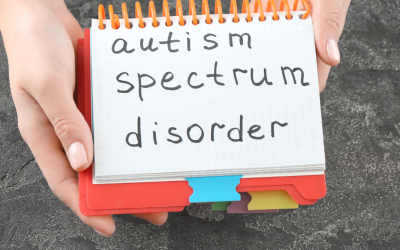The Mind-Body Connection: How Stress Impacts Physical Health and Well-being
In today’s fast-paced world, stress has become an unavoidable part of our lives. Whether it’s due to work pressures, financial worries, relationship issues, or health concerns, stress can take a toll on both our mental and physical well-being. In this blog, we will explore the intricate relationship between stress and physical health, and discuss the best strategies for managing stress effectively.
Understanding the Mind-Body Connection
To truly understand how stress impacts physical health, it’s important to recognize the complex interplay between the mind and body. When we experience stress, our body’s natural response is to go into “fight or flight” mode, releasing hormones like cortisol and adrenaline to help us deal with the perceived threat. While this response is essential for survival in dangerous situations, chronic stress can wreak havoc on our physical health over time.
The Effects of Chronic Stress on the Body
Chronic stress has been linked to a wide range of physical health problems, including:
- Cardiovascular Issues: Prolonged stress can contribute to high blood pressure, heart disease, and even stroke.
- Immune System Dysfunction: Stress weakens the immune system, making us more susceptible to infections and illnesses.
- Digestive Problems: Stress can disrupt digestion, leading to issues like irritable bowel syndrome (IBS) and acid reflux.
- Musculoskeletal Disorders: Tension and muscle stiffness caused by stress can result in chronic pain conditions like tension headaches, back pain, and fibromyalgia.
- Skin Conditions: Stress can exacerbate skin conditions such as acne, eczema, and psoriasis.
- Sleep Disturbances: Chronic stress often leads to insomnia and other sleep disorders, which can further exacerbate physical health problems.
The Role of Stress Management in Promoting Well-being
Given the profound impact of stress on physical health, it’s clear that effective stress management is crucial for overall well-being. Fortunately, there are numerous techniques and strategies that can help individuals better cope with stress and mitigate its harmful effects.
1. Mindfulness Meditation: Mindfulness meditation involves focusing on the present moment without judgment, which can help reduce stress and promote relaxation.
2. Deep Breathing Exercises: Deep breathing exercises, such as diaphragmatic breathing or the 4-7-8 technique, can activate the body’s relaxation response and calm the mind.
3. Regular Exercise: Physical activity releases endorphins, the body’s natural mood elevators, and helps reduce stress hormones like cortisol.
4. Healthy Lifestyle Habits: Eating a balanced diet, getting adequate sleep, and avoiding excessive alcohol and caffeine consumption can all contribute to better stress management.
5. Cognitive Behavioral Therapy (CBT): CBT is a type of psychotherapy that helps individuals identify and change negative thought patterns and behaviors that contribute to stress.
6. Social Support: Maintaining strong social connections and seeking support from friends, family, or a therapist can help buffer the effects of stress.
7. Time Management Techniques: Learning to prioritize tasks, delegate responsibilities, and set boundaries can help reduce feelings of overwhelm and stress.
Seeking Professional Help
While self-help strategies can be effective for managing everyday stress, it’s important to seek professional help if stress becomes overwhelming or begins to interfere with daily functioning. As one of the best psychiatrists in Delhi, Dr. Pankaj Kumar at Healers Psychiatry Centre specializes in treating stress-related disorders and offers personalized treatment plans tailored to each individual’s needs.
Stress can have profound effects on physical health and well-being, but it is possible to manage and mitigate its impact through effective stress management techniques. By practicing mindfulness, engaging in regular exercise, seeking social support, and seeking professional help when needed, individuals can take control of their stress levels and promote better overall health. If you’re struggling with stress, don’t hesitate to reach out to Dr. Pankaj Kumar at Healers Psychiatry Centre for expert guidance and support.
















